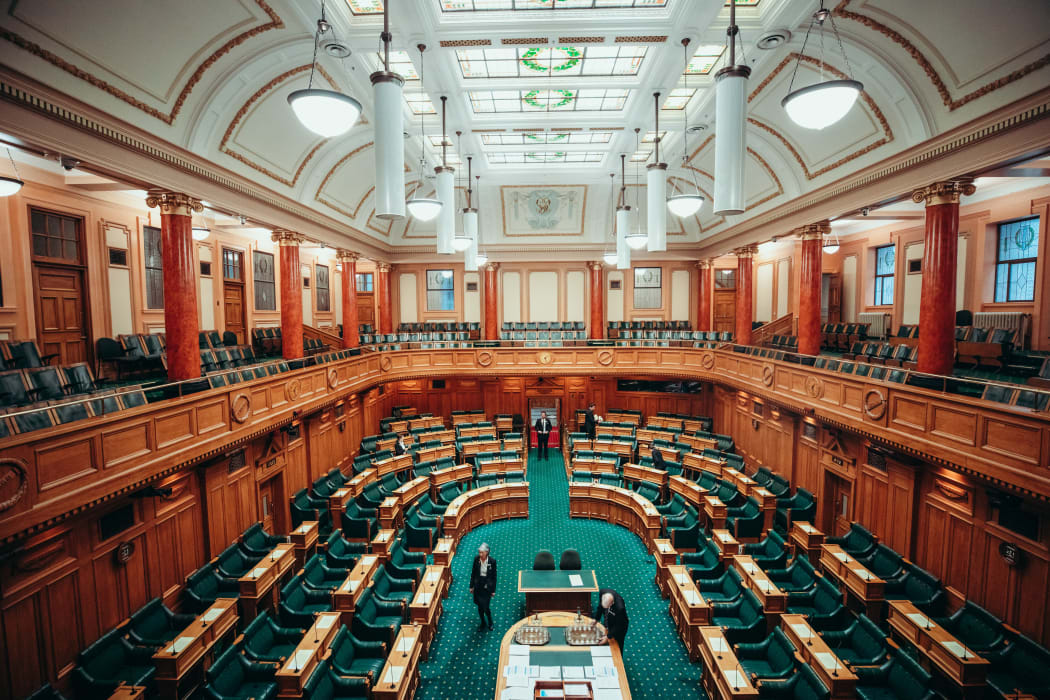Parliament went into urgency this afternoon, for the first reading of legislation making a raft of changes as part of the Covid-19 response.

Photo: RNZ /Dom Thomas
The Covid-19 Response (Management Measures) Legislation Bill amends 15 Acts and one set of regulations.
Covid-19 Response Minister Chris Hipkins described the changes as "largely common sense, pretty practical solutions" to deal with challenges caused by the pandemic.
He singled out two as potentially the most controversial, relating to commercial and residential tenancies.
The provisions were flagged by Justice Minister Kris Faafoi earlier this week: the first to help businesses resolve disputes over commercial rent, and then provide greater certainty for landlords and tenants by protecting residential tenancies from being terminated during alert level 4.
A clause would be inserted into the Property Law Act requiring a 'fair proportion' of rent to be paid where a commercial tenant had been unable to fully conduct their business in their premises as a result of lockdown restrictions.
The minister said the landlord and tenant would need to agree on the amount of rent that was fair, but they could also agree the clause did not apply. Mediation or arbitration would be required where landlords and tenants were unable to come to an agreement.
The new bill stipulates the new provisions relating to commercial rents would be in place from 28 September 2021, making it retrospective.
National's Chris Bishop told the House that it "actually interferes in the sanctity of contract between landlords and tenants" and MPs would want to have a much closer look at it through select committee.
And a change to electoral law caught his eye, which "allows the government to change the nomination times and day for local elections".
The current law would allow local elections to be delayed for up to six weeks, which Bishop said "was fair enough as you need a bit of flexibility".
But he told the House under this new bill "the government can do it multiple times, doesn't set a limit for how often they can do it ... for six weeks at a time, including into the year following a local election".
Bishop acknowledged Covid-19 could be a problem in general elections where people had to physically turn up to polling booths, but that would not apply to local elections as they are done by postal vote.
ACT leader David Seymour said the retrospective law changes for commercial tenancies was akin to something seen in a "banana republic".
"What that means is - this is important - that if you sign a contract with another New Zealander, under New Zealand law, you don't know when the government might come along and change the nature of that contract.
"The government doing that is something that we normally associate with banana republics, with countries in South America, with countries in Africa, with places that if you try and make a deal and you think that your rights are secure, a corrupt government can come along and dash your hopes," Seymour told Parliament.
Hipkins said this bill was very much a temporary measure, and the government would take the time to pass legislation, if needed, to make any changes more long-term.
The bill also extends a number of deadlines, including for key climate change policy decisions, giving courts more flexibility to operate and clear backlogs and extending the time major infrastructure projects can get fast-tracked consenting.





